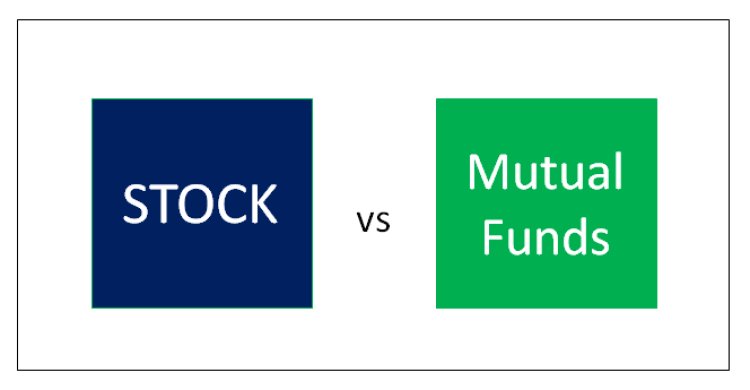Navigating Investment Choices: Mutual Funds vs Stocks
Share this Post to earn Money ( Upto ₹100 per 1000 Views )

Introduction:
When venturing into the world of investments, individuals are often confronted with the pivotal decision between mutual funds and stocks. This choice can significantly impact the growth and stability of your portfolio. In this article, we'll delve into the key distinctions between Mutual funds vs Stocks, helping you make an informed decision that aligns with your financial goals.
Understanding Mutual Funds:
Mutual funds, a popular investment option, pool money from various investors to create a diversified portfolio managed by professionals. The diversity of assets, including stocks, bonds, and other securities, provides investors with a well-rounded and less risky investment avenue.
Pros of Mutual Funds:
- Diversification for Stability: Mutual funds shine in their ability to offer instant diversification. By spreading investments across various assets, they mitigate the impact of poor performance from any single investment on the overall portfolio.
- Professional Management: Expert fund managers oversee mutual funds, making decisions on behalf of investors. This professional management is appealing to those who lack the time or expertise to actively manage their investments.
- Liquidity and Accessibility: Mutual funds provide liquidity, allowing investors to buy or sell shares at the fund's net asset value (NAV) at the end of each trading day. This accessibility makes them a convenient choice for those seeking flexibility in managing their funds.
Cons of Mutual Funds:
- Fees and Expenses: Mutual funds often come with fees, including management fees and other expenses. While these fees cover professional management, they can impact returns over time.
- Limited Control: Investors have limited control over the individual securities within a mutual fund. The fund manager makes decisions based on the fund's objectives, necessitating trust in their expertise.
Understanding Stocks:
On the other side of the spectrum are individual stocks, which represent ownership in a specific company. Investing in stocks entails a direct stake in a company's performance and the potential for significant returns, albeit with higher volatility.
Pros of Stocks:
- Potential for High Returns: Stocks present the opportunity for substantial capital appreciation, making them attractive to investors seeking robust growth.
- Individual Control: Investing in stocks offers complete control over your portfolio. Investors can choose stocks based on their research, strategies, and risk tolerance, allowing for a personalized investment approach.
- Dividend Income: Some stocks pay dividends, providing investors with a steady income stream in addition to the potential for capital appreciation.
Cons of Stocks:
- Volatility and Risk: Stocks are known for their price volatility, subject to fluctuations due to market conditions, economic factors, or company-specific events. This volatility can pose a higher level of risk compared to mutual funds.
- Lack of Diversification: Unlike mutual funds, investing in individual stocks lacks built-in diversification. Poor performance of a single stock can have a more significant impact on the overall portfolio.
Choosing Between Mutual Funds and Stocks:
The decision between Mutual funds vs Stocks hinges on various factors. Consider your investment goals, risk tolerance, time commitment, and desired level of control over your portfolio.
- Investment Goals: Clarify whether your aim is long-term growth with minimal involvement (favoring mutual funds) or active management for potentially higher returns (favoring stocks).
- Risk Tolerance: Evaluate your comfort level with risk. Mutual funds offer stability through diversification, while stocks carry a higher potential for volatility and reward.
- Time Commitment: Assess the time you can dedicate to managing your investments. Mutual funds require less active oversight, making them suitable for busy individuals, whereas stock investing may demand more time and attention.
- Diversification Preferences: Consider your preference for diversification. If you prefer a well-diversified portfolio without selecting individual securities, mutual funds are a strong choice. If you enjoy researching and selecting individual companies, stocks may be more appealing.
- Income Needs: Reflect on whether you seek income from your investments. Dividend-paying stocks can provide a steady income stream, while mutual funds may generate income through capital gains and dividends.
Conclusion:
Mutual funds vs Stocks is a crucial decision that shapes your investment journey. Many investors find a balanced approach by combining both, leveraging the stability of mutual funds and the growth potential of individual stocks. Regardless of your choice, staying informed, regularly reviewing your portfolio, and adjusting as needed are essential practices to align your investments with your evolving financial objectives.













![Neo Drops Germany Reviews [New Updates 2024] Read Before Buy!](https://blog.rackons.in/uploads/images/202405/image_380x226_66434f2f0c0b6.jpg)